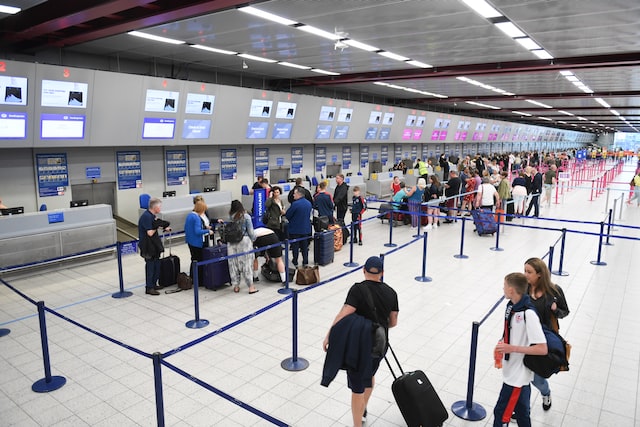Visas are required for citizens of many countries and significantly influence the ease with which people can enter and exit their country. They are also often used to restrict the entry of potential asylum seekers and visa overstayers.
Visa restrictions manifest the nation-states’ willingness to regulate, monitor and control the entrance to their territory in a globalized world. They display a complex trade-off between facilitating passport holders from certain countries and deterring those from other countries, mainly wealthy nations.
Tourism
Getting a visa to enter or visit a foreign country like Australia international travel can take a lot of work. While you’ll likely be asked for your passport, you must provide documents such as your itinerary and hotel bookings. Fortunately, many companies are more than willing to help. The best way to avoid a hassle is to ensure you follow the latest immigration rules before your departure date. Using a trustworthy travel agent is the most effective way to accomplish this. They’ll know the best time to book and can offer you various travel insurance options. The right policy will give you peace of mind on your next trip and the reassurance that you won’t be charged any hidden costs in an emergency. The best part is that it can be done without breaking the bank. The best travel agents will be able to recommend the best products for your needs and give you the insider scoop on the latest rules of the game.
Security
The main reason why certain countries have visa restrictions is that they want to keep their citizens safe and secure. This can include preventing illegal immigration or other criminal activity. In addition, they also want to ensure that their citizens can enjoy a high quality of life and participate in essential activities without any hassles.
There are several reasons that countries have visa restrictions, and it’s important to know what they are for before you go on vacation. This way, you can plan your trip accordingly and not have any issues when you’re there.
This type of security is a great way to protect your belongings from theft or other crimes. It’s beneficial if you live in an area where crime is typical or visit a city or country with many visitors.
Another reason some countries have visa restrictions is that they want to prevent travel from specific individuals. This can be done by requiring travelers to apply for a visa before entering the country. In addition, some countries limit how long you can stay in a country if you do not have a valid visa.
This is important because it prevents criminals from traveling to a country and working there illegally. It can also help to protect a country’s tourism industry and trade.
Economic
The cross-border mobility of people, goods and services, and capital has expanded enormously in intensity and diversity over the past few decades. States have an interest in facilitating these flows to benefit from economic globalization. However, mainly due to security concerns, most governments grant visa-free mobility only very selectively. The result is that mobility barriers prevent the reaping of the full benefits of economic globalization and come at substantial economic costs. These include lost tourism and travel, trade and investment, and the loss of opportunities for local service economies.
Cultural
Several countries are known for their innovative and often dubious immigration policies. They have several stipulations for citizens and visitors, many of which are well publicized, and some could be better informed. These stipulations include the mandatory prerequisites (and, in some cases, not so obligatory) required by law for both legal and illegal entry. These stipulations are designed to prevent many undesirable visitors and ensure a positive travel experience for all, not just a few selected lucky few. In the grand scheme, the essential requirement is a valid passport tucked neatly away in a secure area.
Religious
Several factors go into how governments around the world restrict religious freedom. Some of these factors are practical, such as limiting the movement of people from one country to another. Others are symbolic and assert a new country’s sovereignty. One of the most significant influences is whether a nation’s constitution or fundamental law expressly provides for religious freedom and how that government enacts laws and policies to enforce it.
Governmental restrictions on religion, or laws, policies, and actions by state officials that restrict religious beliefs and practices, have significantly increased globally over the ten years from 2007 to 2017. In addition, social hostilities involving religion – violence and harassment by private individuals, organizations or groups that interfere with religious beliefs and activities – have also risen. These restrictions, however, are not uniform across the globe and in all eight categories measured in this study.
Around 26% of the 198 countries under study in 2017 had high or very high levels of government restrictions, which are laws, policies, and official actions that limit religious beliefs and practices. This figure dropped from 28% in 2016, following two years of increases, but it remains nearly double the level of the average country in any region. And it’s nearly twice as high in the Middle East and North Africa part than in any other.




